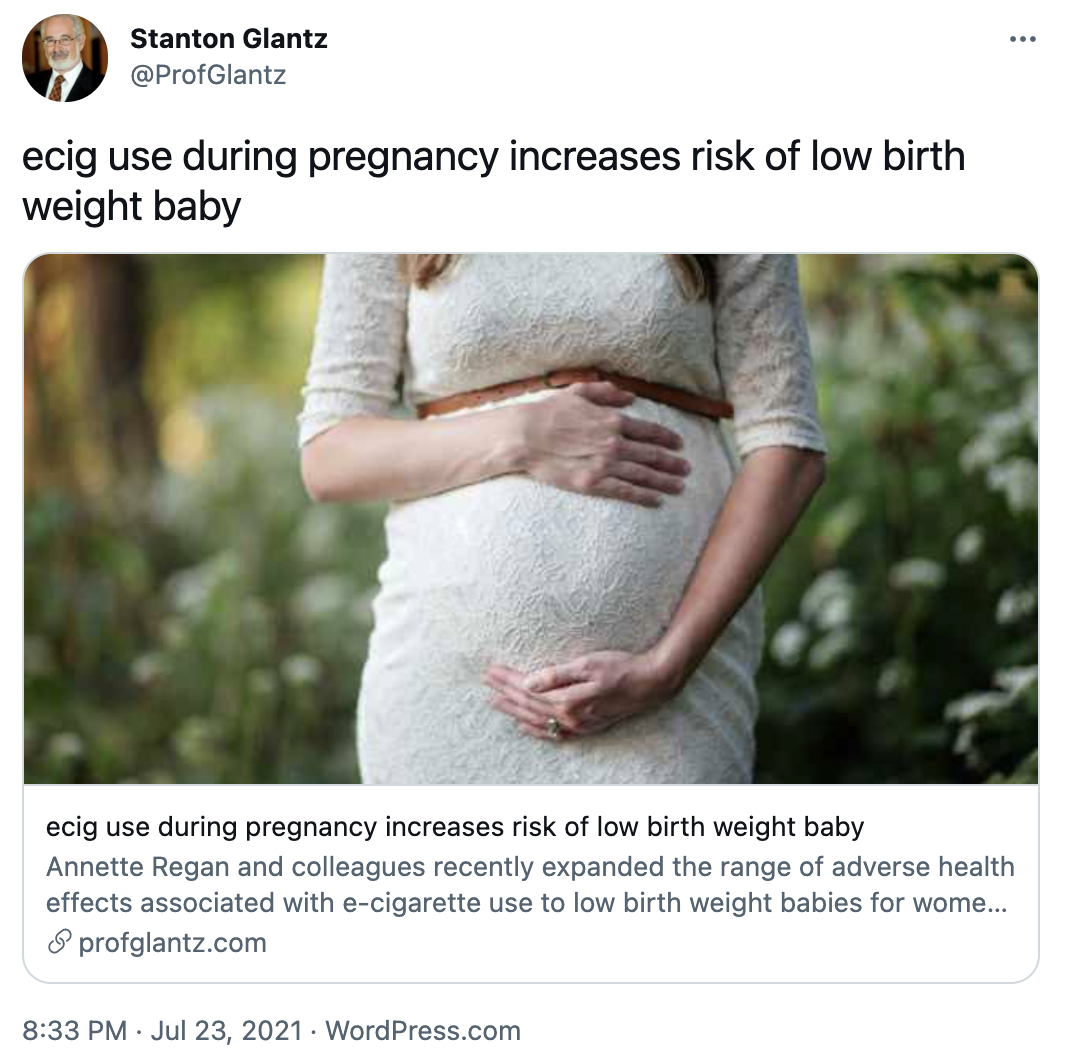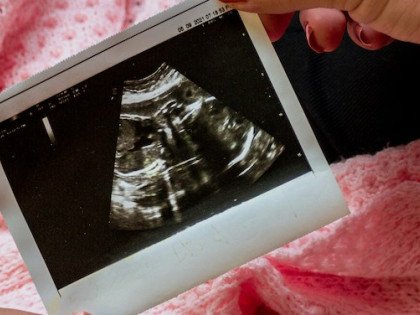Writing about a “study” published by the American College of Obstetricians and Gynaecologists, Glantz said: “These studies should convince the British National Health Service to reconsider its recommendation that pregnant women use e-cigarettes instead of cigarettes. They also need to reconsider their statement that nicotine is ‘relatively harmless’ for developing babies. More important, this is yet another risk that FDA needs to consider when deciding if authorizing e-cigs for sale is ‘appropriate for the protection of public health’.”
For a man who was proven to fabricate findings, it comes as no surprise that he attempts to turn a single study (1) into plural evidence.
And what of that study?
It was produced by a team at the University of California, Los Angeles, and the University of San Francisco – at which point anybody with a memory of the previous junk science will be checking out from delving further.
The authors concluded: “E-cigarette use during pregnancy, particularly when used daily by individuals who do not also smoke combustible cigarettes, is associated with adverse birth outcomes.”
What the academics did was to analyse data, they didn’t study actual cases before and after birth. No blood tests were done, no CO screening took place.

Will the NHS reconsider its position?
No, it won’t because it doesn’t listen to poor quality West Coast science or shamed trouble makers. It listens to the likes of Professor Linda Bauld.
Bauld, together with Robert Calder, Eleanor Gant, Ann McNeill, Debbie Robson, and Leonie Brose conducted a systematic review of relevant literature. It was published in the journal Nicotine & Tobacco Research in February (2).
They looked at five academic databases, finding twenty-three studies on the subject of vaping and birth weight. They concluded that despite a limited amount of literature to draw from, the evidence “suggests that vaping in pregnancy has little or no effect on birthweight.”
“Smoking causes many negative health outcomes for pregnant women and to babies born to people who smoke. There remains a paucity of research on the effects of vaping in pregnancy. There is, however, the potential for vaping products to reduce the negative health outcomes associated with smoking.”
Glantz doesn’t care – he’d much rather continue to demonise vaping, see pregnant women continue to smoke, and have babies born underweight. All retirees need a hobby, let’s hope he finds one soon.
References:
- Adverse Birth Outcomes Associated With Prepregnancy and Prenatal Electronic Cigarette Use - https://pubmed.ncbi.nlm.nih.gov/34259468/
- Vaping in Pregnancy: A Systematic Review - https://academic.oup.com/ntr/advance-article/doi/10.1093/ntr/ntab017/6128578
Dave Cross
Journalist at POTVDave is a freelance writer; with articles on music, motorbikes, football, pop-science, vaping and tobacco harm reduction in Sounds, Melody Maker, UBG, AWoL, Bike, When Saturday Comes, Vape News Magazine, and syndicated across the Johnston Press group. He was published in an anthology of “Greatest Football Writing”, but still believes this was a mistake. Dave contributes sketches to comedy shows and used to co-host a radio sketch show. He’s worked with numerous start-ups to develop content for their websites.
Join the discussion
Expert Reaction to Pregnancy Study
Experts have reacted to the QML study of impacts of vaping in pregnancy and comparison with smoking
Study: Vapes Help Pregnant Quitters
A new study from Queen Mary University of London finds that vapes help pregnant smokers quit and pose no risk of poor pregnancy outcomes
IBVTA responds to UCL study
The Independent British Vape Trade Association has responded to University College London research and said the findings show the Government’s smoke-free ambition is stalling
Cochrane Review Echoes Swedish Success
The Cochrane Review echoes the Swedish approach, finding less harmful alternatives like vaping are superior to other quit methods, says Smoke Free Sweden






-listing400.jpg)




